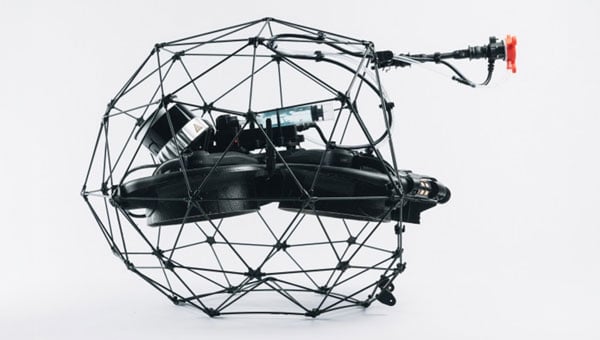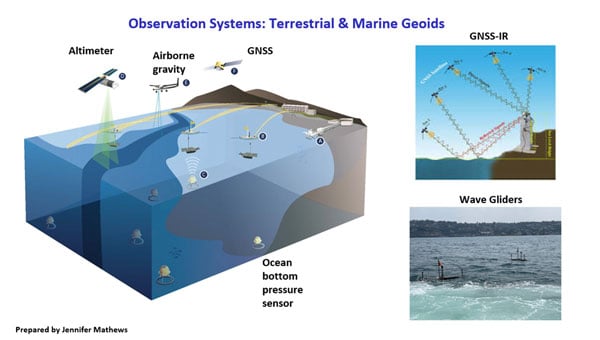Will the Next Industrial Revolution Be Bigger than the First? Will Geospatial Technology be Part of It?
It’s truly mind-boggling when I think of how early we are in the technology adoption curve — not just for geospatial technology, but technology in general. On the one hand, it’s scary to think about how much technology might penetrate and be further integrated into our lives, on the verge of threatening our privacy if we let it. On the other hand, it’s frustrating to think about how crashes, crimes and catastrophes can be avoided or minimized if today’s technology was deployed.
Crashes. There is no reason that something like the Asiana Airlines crash at the San Francisco International Airport or the Southwest Airlines Boeing 737 landing at the wrong airport in Branson, Missouri, earlier this month should have ever happened. Technology exists today that can prevent these sorts of incidents and tragedies caused by human error, and prevent some that are not caused by human error.
Simply put, if my automotive GPS receiver can steer me to the correct McDonald’s (one of many) within a city, there’s no reason a GPS receiver (with a current airport database) can’t guide a pilot to the correct airport. If I can load a CAD model into a bulldozer machine-control system and have it grade the surface material to within a few centimeters, a similar GPS system can certainly assist in landing an airliner at the San Francisco airport without hitting the sea wall.
Thinking on a broader scale, there is no reason that the vast majority of vehicle crashes should occur. That’s right, something that occurs every day and in every city in the world, causing billions of dollars of economic loss each year, should never happen. At a minimum, high-speed laser rangefinders on each side of a vehicle could monitor the distance from other vehicles/obstacles and automatically brake or warn the vehicle operator of an impending collision if preventive action is not taken. The advancement of Intelligent Transportation Systems (ITS) will change our daily lives, and that technology revolution is just beginning.
Crimes. Stolen vehicles should become nearly extinct. Just like nearly every rental car today has a GPS tracking system in it to track its location if stolen, there’s no reason that every personal and commercial vehicle should not have the same technology. In fact, every valuable (as deemed by you) possession such as your bicycle, your pets, your lawnmower, and even your kids, can be outfitted with some sort of inexpensive location technology.
How about monitoring convicted felons? Imagine the massive cost savings if prison populations could be significantly reduced because convicted felons could be “electronically incarcerated”?
Catastrophes. We can’t control Mother Nature’s power to wreak havoc with her weather phenomena, but people can be forewarned and bettered prepared to take timely action. Television has the Emergency Alert System, which is designed to enable the president of the United States to speak on television to the American population within 10 minutes. However, with services such as Netflix, Chromecast, and DVR recording devices, television viewing habits are changing. The mobile device is the new television. A tremendous amount of work still needs to be done to catch up with the rapid adoption of mobile devices.
The U.S. National Oceanic and Atmospheric Administration (NOAA) reported that it helped save 253 lives in 2013 using sensors on satellites to forewarn people of severe weather. According to NOAA, its satellites detected distress signals from emergency beacons carried by downed pilots, shipwrecked boaters and stranded hikers, and relayed information about their locations to first responders on the ground. It’s a powerful statement of what the combination of sensors and communications can accomplish.
“Each life we save underscores the undeniable value of NOAA satellites,” said Mary Kicza, assistant administrator for NOAA’s Satellite and Information Service.
The Common Denominator
The common technology denominator for eliminating or mitigating the effects of crashes, crimes, and catastrophes is sensors and communications. Those two technologies are the driving forces behind the next industrial revolution, and it’s going to be huge, perhaps a bigger economic impact on the world than the first industrial revolution, according to an article in the San Jose Mercury News.
The Mercury News article quotes a study published by General Electric (GE) concluding that sensors and communications (referred to as the Internet of Things in the article) could “add as much as $15 trillion to the global GDP, which it noted is roughly the size of today’s U.S. economy.” That’s a staggering number.
After I read the Mercury News article, I thought about many of the geospatial consulting projects I’m working on. The biggest challenges my clients face are related to one of three technologies: lack of inexpensive sensors, lack of communications, and lack of software to deal with the increasing volumes of data (for example, Big Data).
I’ve written about the value of sensors (GNSS, RFID, analog, etc.) quite a bit. I believe they will be the foundation of the next industrial revolution because they will provide a high level of granularity — in other words, very detailed data from which better decisions can be made. A great example is the Snapshot program that insurance company Progressive uses to dial in automobile insurance rates. Part of the Snapshot program is a device that you plug into your car’s OBD (On-Board Diagnostic) port. It monitors your driving habits for 30 days. It records how often and how hard you apply your brakes, how many miles you drive and times during the day that you drive. After 30 days, Progressive statisticians evaluate your driving habits and assign an insurance premium. If you’re a safe driver (by their definition), you’ll likely save money on your insurance premium.
According to Progressive, drivers respond to real-time feedback.
The industry publication Insurance & Technology reports that the newer version of Snapshot provides real-time feedback such as a “beep” when driver brakes too hard. Progressive General Manager Dave Pratt claims, “You do see the driving score change — we have data that says people who get that kind of feedback have fewer accidents. But I see that as real-time feedback 1.0. You want to do more, but you do not want to distract people while they’re driving either. There’s a balance to be struck.”
Progressive’s Snapshot program is a great example of using an inexpensive sensor to collect highly granular data in order to make better decisions. Think about how having access to granular data like this in your job may enhance your decision-making. If a farmer precisely knew the characteristics of the soil in all of his fields and within each field, wouldn’t he make better decisions about soil treatment and planting? If a municipal engineer precisely knew the condition of a water distribution system, wouldn’t she be able to make better decisions about maintenance and upgrade requirements?
Inexpensive sensors are only one piece of the puzzle. Without a method of real-time communication and software to process it, the value of the data suffers. Therefore, inexpensive sensors will drive the demand for both communications and data processing software.
Lastly, I’ll leave you with an image of a slide presented by Dr. James Canton, CEO at the Institute for Global Futures. The slide is part of a presentation of his entitled “Global Tech Trends 2014”. It is a concise illustration of the confluence of sensors, communications, and data.
Thanks, and see you next time.
Follow me on Twitter at https://twitter.com/GPSGIS_Eric



























Eric: I’m glad you’re drawing attention to absence of stringent requirements for available — and urgently needed — prevention capability. The two latest blogs on my website, plus the material linked therein, can offer support to the case you’ve made. I’ve also responded to recent LinkedIn discussions related to collisions and the current lack of support for preventive methods. All we can do is keep pushing; sooner or later the industry has to face up to hard reality.
Eric: I’m glad you’re drawing attention to absence of stringent requirements for available — and urgently needed — prevention capability. The two latest blogs on my website, plus the material linked therein, can offer support to the case you’ve made. I’ve also responded to recent LinkedIn discussions related to collisions and the current lack of support for preventive methods. All we can do is keep pushing; sooner or later the industry has to face up to hard reality.
Author is suffering from euphoric techno-fabulism syndrome. No known cure.
For the most part, the technology pieces exist. It’s just a matter of implementing the technology, and that is just a matter of time.
Author is suffering from euphoric techno-fabulism syndrome. No known cure.
For the most part, the technology pieces exist. It’s just a matter of implementing the technology, and that is just a matter of time.
>>it’s scary to think about how much technology might penetrate and be further integrated into our lives, on the verge of threatening our privacy if we let it.
Interesting article Eric, thank you. But I would say that tracking technology (adware, social media, Big Data analytics, maybe gov. spying on us all “just in case” etc.) already do threaten our privacy, in fact have obliterated that quaint notion, whether we let it or not. Without unplugging completely and joining a monastery, there is no avoiding it.
I agree, privacy really doesn’t exist unless you are completely unplugged (including mobile phones). I’m ok with it to a certain extent. I guess that’s the decision people with have to make. At what point is a person ready to throw in the towel and completely unplug?
>>it’s scary to think about how much technology might penetrate and be further integrated into our lives, on the verge of threatening our privacy if we let it.
Interesting article Eric, thank you. But I would say that tracking technology (adware, social media, Big Data analytics, maybe gov. spying on us all “just in case” etc.) already do threaten our privacy, in fact have obliterated that quaint notion, whether we let it or not. Without unplugging completely and joining a monastery, there is no avoiding it.
I agree, privacy really doesn’t exist unless you are completely unplugged (including mobile phones). I’m ok with it to a certain extent. I guess that’s the decision people with have to make. At what point is a person ready to throw in the towel and completely unplug?